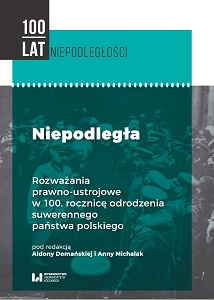
We kindly inform you that, as long as the subject affiliation of our 300.000+ articles is in progress, you might get unsufficient or no results on your third level or second level search. In this case, please broaden your search criteria.


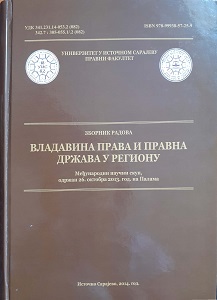
Changes regarding the attitude toward children occurred in the social milieu during the XVIII and XIX century and culminated in legal regulation throughout the XX century. This century marks a milestone in the recognition of the children rights, and abandons contemporary models of depriving children of their rights and patriarchal models of child protection. In international law, when it comes to family, three elements are in focus: family, family environment and family life. Subject of our interest in this paper are the "Geneva Declaration", Declaration on the Rights of the Child (1924), and especially, Convention on the Rights of the Child (1989).Declaration on the Rights of the Child (1924) provides principles such as: that children need to be provided with conditions for normal physical and mental development, that hungry child has to be fed, that sick child has to be cared for, that orphans should be looked after, that child should be protected from exploitation. This Declaration for the first time emphasizes economic, psychological and social needs of the children.Declaration on the Rights of the Child (1959) consists of a preamble and ten principles. The fact that it was adopted without abstentions shows that this international act is more important than the other acts of the General Assembly – it has moral binding force. UN Convention on the Rights of the Child (1989) is the longest legally binding contract of the United Nations General Assembly. It is based on four principles: participation, protection, prevention and the provision (so-called four “P” rights). One of the most significant innovations of the Convention is the principle of the best interests of the child and increasing legal capacity of a child. These two principles are protective mantle for all Convention rights. Indicators in the field of children's rights after Second World War, reflected in the adoption of a number of legally binding documents related to children and children's right, show that the position of children is no longer each country’s internal matter.
More...
The idea of introducing Senate in Serbian constitutional system app-eared in articles, constitutional drafts and committees in the second half of 19th century. However, bicameral National Representative Body was envisaged for the first time in the Constitution of the Kingdom of Serbia of 1901. Considering the fact that bicameral structure of National assembly had not been known in antecedent Serbian constitutional history, we could come to the conclusion that the authors of the Constitution relied on foreign models when introducing this novelty. That is the reason why the author of this paper points out to foreign influences on the Constitution.Although existence of two houses of legislature complicates legislative procedure, it also improves quality of legislative work and intellectual structure of National Representative Body. On the other hand, bicameral legislative body contributes considerably to realization of principles of the rule of law, such as legality, legal security and separation of powers. Due to advantages of bicameral over unicameral system, Serbian constitutions of 1869 and 1888 introduced some substitutes for upper house of legislature. These were one third of deputies appointed by knez in the Constitution of the Principality of Serbia of 1869, and two deputy candidates with university degree in each electoral unit and certain legislative power of State Council in the Constitution of the Kingdom of Serbia of 1888.
More...
The article is intended to determine why extraordinary criminal courts were frequently established in Serbia in the period between 1839 and 1844. In aforementioned five-year period, eight extraordinary courts were set up. Besides, four other propositions had been put forward to constitute extra-ordinary court, but were rejected. Significant number of propositions for establishing extraordinary courts and significant numbers of extraordinary courts which were actually established requires an explanation as to why this unfavoured institution was to such an extent popular among Serbian governments of that time.The reasons for extraordinary courts appearing in many instances can be divided into two groups – official and unofficial. Official reasons are stated in the acts proposing constitution of extraordinary courts. Five of them were mentioned. Those are: multitude of co-perpetrators, offenders being domiciled in different districts, the nature of crime and expedition of trial where co-perpetrators were of different statuses (the military and civilians). Hardly ever would only one factor be stated as the reason for set-ting up an extraordinary court. Usually two of them appear among which nature of crime and expedition of trial are coupled most recurrently.Unofficial reasons comprise social and legal consciousness, under-development of the judiciary, political instability and desire to quell political opposition. The last-mentioned stands out as the unofficial reason of greatest significance.Which of two groups of reasons had prevailing influence over government to set up extraordinary courts? In order to answer that question, one must apply comparative method. In other words, it means that the presence of more constant, formal reasons in aforementioned five-year term should be compared with their occurrence in subsequent period. The comparison reveals that unofficial reasons predominate over official ones.
More...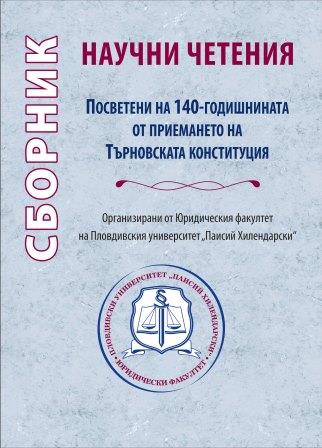
The legal nature of the figure of the governor is one of debatable questions of the Bulgarian legal doctrine. In this article is carried out an attempt for additional argumentation of a concept about the governor as a regional body of the executive power. Attention is paid to the environmental protection powers of the governor under the Bulgarian environmental legislation.
More...
Contemporary Bulgarian constitutionalism has deep and solid foundations laid in the National Revival era. On April 16, 1879, representatives of the Bulgarian people, gathered in the old Bulgarian capital – Tarnovo, adopted the Constitution of the Bulgarian Princedom, known as the Tarnovo Constitution. It is the first Bulgarian founding act that revived Bulgaria for a new political life, paving the way to its modern European statehood. This paper is dedicated to the 140th anniversary of the adoption of the Tarnovo Constitution.
More...
The debate over the need for compulsory education and the set of educational standards in various texts of the first Bulgarian constitution, known as the Tarnovo Constitution, highlights the importance of the issue for the constitutional assembly members. The clearly recognized need to reduce illiteracy among the population and to create specialists necessary for the development of the country affects the duration of the debate and the diversity of opinions when discussing the provisions. Recognized as one of the most democratic constitutions of its time, the Tarnovo Constitution contains the entire classical catalog of human rights and freedoms, among which the right to free compulsory education,enshrined in Art. 78 of the final text of the basic law.
More...
The article provides an in-dept overview of the different visions and norms that have led to different perception of corruption throughout the millennia of legal, economic and social history. Corruption in Ancient Rome and Ancient Greece is of considerable importance for this topic, as well as the ideas, developed in the theses of Machiavelli, Montesquieu and Mandeville are of significant interest. The article presents some of the most interesting cases of corruption in different fields of social life from historical point of view.
More...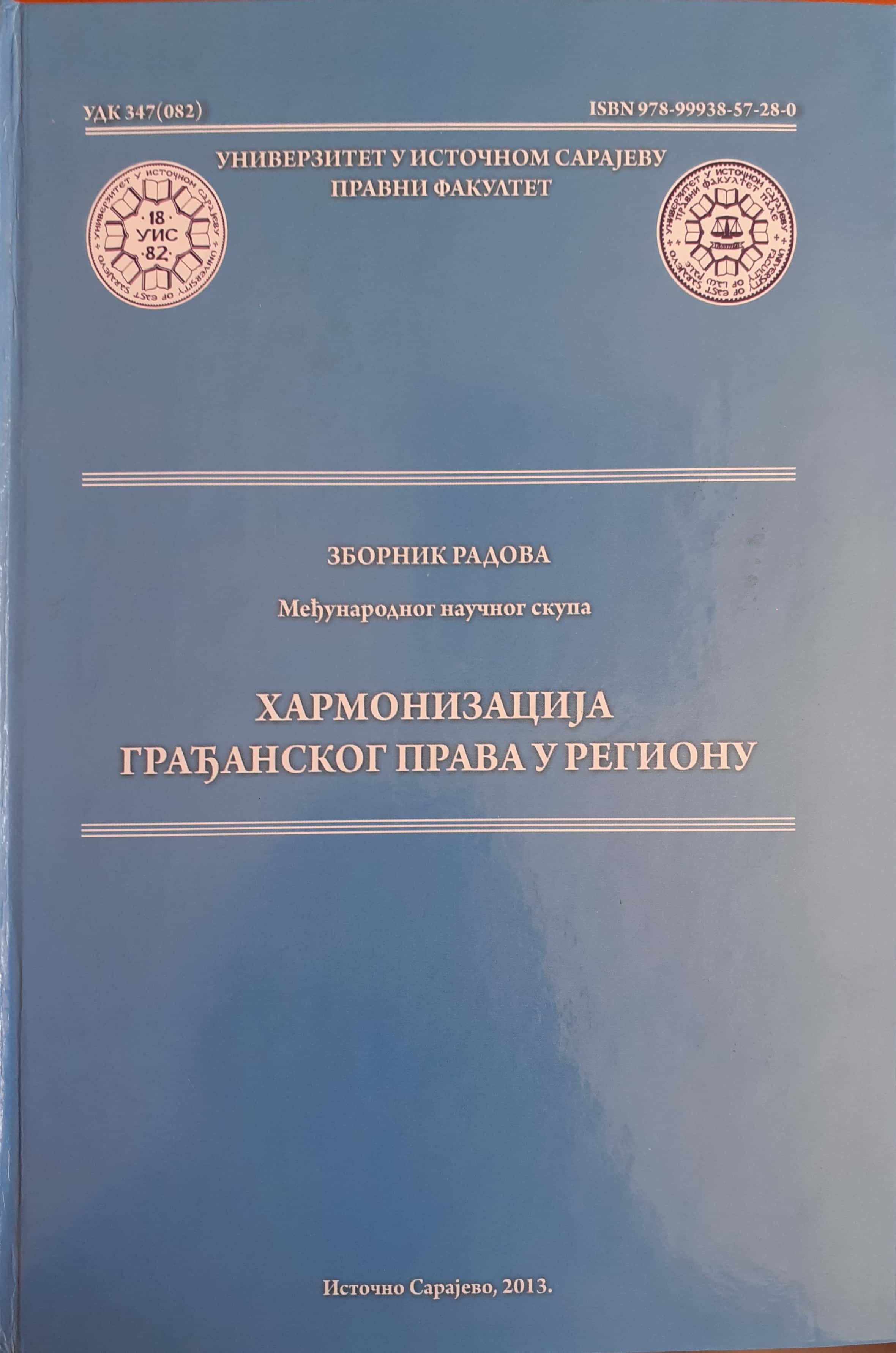
According to the opinion of Roman lawyers, depositum was a contract in which a depositor gave a res to a depositee to be kept without renumeration and to be returned on demand. Special cases of depositum were: depositum sequestre, depositum necessarium or depositum miserabile and depositum irregulare. Byzantine law pays a special attention to the contract of depositum. Ecloga contains chapter XI referring to the depositum, entitled Περί πάσης παραθήκης. Chapter XVIII of Procheiron entitled Περί καταθήκης, contains fourteen rules concerning the depositum, and the chapter XXV from Epanagoge, with the same title, contains sixteen fragments on the same topic. However, Matthew Blastares in his Syntagma canonum incorporated only two fragments referring to the depositum, taken from the Procheiron, in a short chapter under the title Περί παρακάταθήκης: 1) the general definition of depositum, and 2) the law on responsibility of a depositee for a loss of a thing in case of vis maior, culpa or neglegentia.The contract of depositum was mentioned in medieval Serbia mostly in the translations of Byzantine legal miscellanies, while Serbian legal sources mention it very rarely.In chapter 48 of the Nomokanon of Saint Sava, entitled Selection of laws that God gave to Moses, we find a short title On depositum (O poklade). Much more important is chapter 55 in which Saint Sava has adopted the complete text of the Procheiron. Title XVIII On depositum (O pokladeži) contains fourteen fragments translated from the Procheiron. The Serbian redactors of the complete Syntagma of Matthew Blastares omitted nothing from the original Greek text. However, they added one more provision which increased the responsibility of the depositee. Serbian legal sources mention the contract of depositum especially in the relationships between the citizens of Serbia and the small City-Republic of Ragusa (Dubrovnik). The remaining documents were written either in Latin or in the old Serbian language.In the documents, written in the old Serbian language, besides the word poklad, used in the translations of Byzantine legal miscellanies, we can find, for depositum, the nouns postava and pohrana as well as the verb postaviti. The most important document, treating the depositum, is a very long list of deposited objects, left by Serbian Despot Đurađ Branković to be kept by the Ragusans (1441, January 25). The list was made by Ragusan notaries.
More...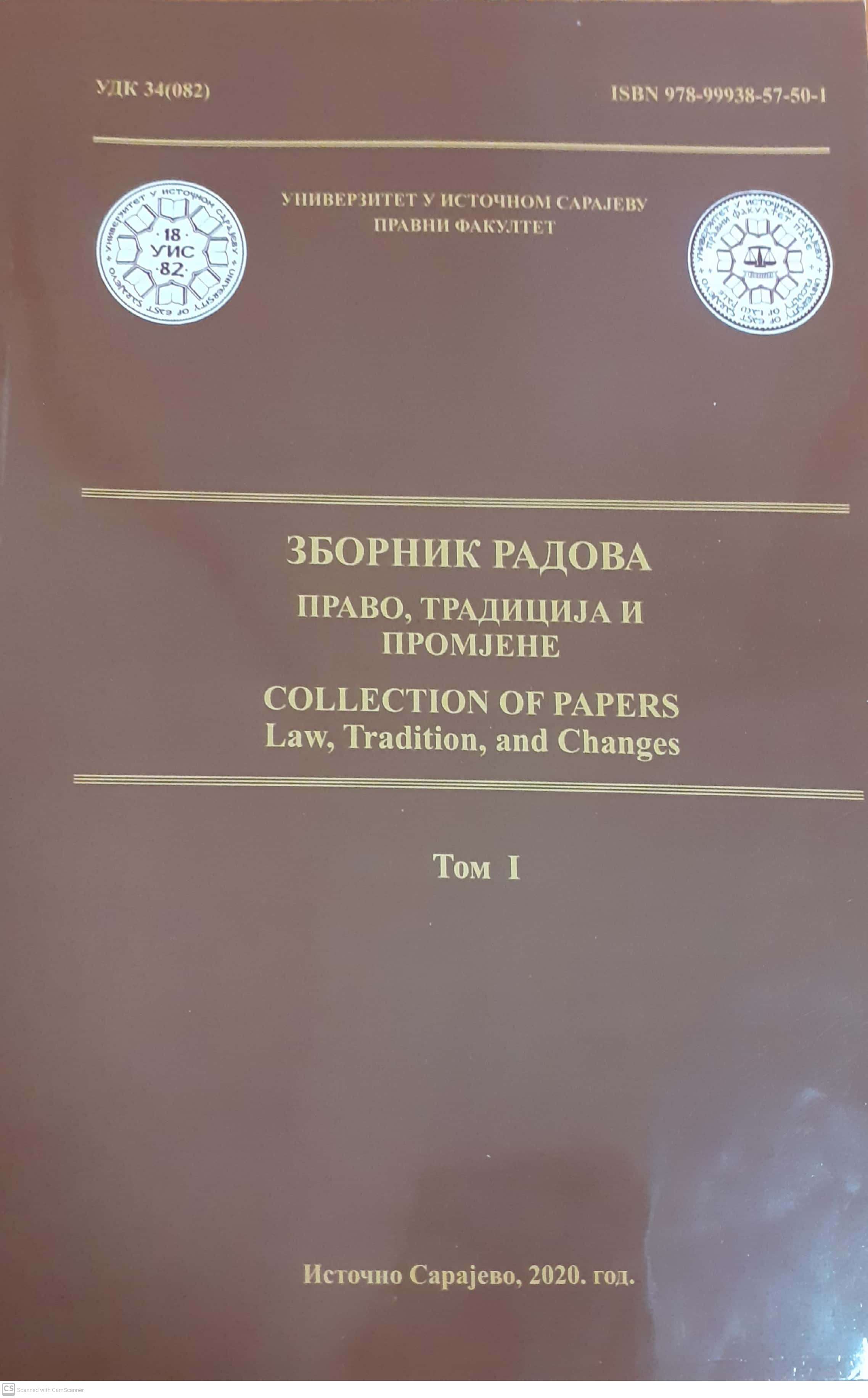
St. Sava also included in his Zakonopravilo some of the secular legislation which he had taken from the Byzantine collections, with the aim of directing the Serbian state and its subjects in a legal way and thus extending Serbian customary law to secular laws. Jeftimije Jovanovic has been studying Zakonopravilo for forty years and wrote a first textbook based on Zakonopravilo. Sergei Viktorovich Troicki also studied Zakonopravilo for as many years as Jeftimie Jovanovic and left numerous papers and especially detailed guidance on how photo-types of the Zakonopravilo should be made. The author points to the need to consolidate the study of the Zakonopravilo of St. Sava in the works of Jeftimie Jovanovic and Troicki and believes that this would lead to the conclusion that St. Sava is the creator of legal terminology, not only among Serbs, but among other Slovenian nations as well. Author thinks that connecting the study of the Zakonopravilo of St. Sava with works of Jovan Hadžić, Slapkin, Beneševič and Valtazar Bogišić, would lead the doctrine of church and civil law to the conclusion that returning to sources is the safest route to the modern organization of legal institutes. The Zakonopravilo could be a guideline for the legislator on how to adopt applicable regulations that will be tailored to the addressees' needs, taking into account geographical location and economic and social status.
More...
The subject of the research is the reception of ancient legal and political ideas by Serbian intellectuals who actively participated in the First Serbian Up- rising (1804-1813) and in the creation of the ideology of the Serbian Revolution. They generally accepted the theory of social contract according to which the state is not an abstract term separate from the people who make it, that is, it is equated with the community of citizens. Serbian scholars knew about the forms of government that existed in classical antiquity, and they accepted the division of forms of government into monarchical, aristocratic and democratic, just like some fundamental legal principles of Roman law, such as equality of citizens before the law and the rational and ethical character of law. Also, defining the concept of law as an expression of the people's will expresses the influence of the analogous concept of Roman law.
More...
One of the issues that the newly established Austro-Hungarian authorities had to deal with after the occupation of Bosnia and Herzegovina was its legal order. Despite the reformist intentions, the replacement of the Ottoman right by the Austro-Hungarian right could not be carried out at once. In this paper the author will try to answer the questions as to how the Austro-Hungarian authorities treated the current Ottoman legal order and if Bosnia and Herzegovina could influence the formation of its own legal system? Ultimately, these answers should project a picture of what was the law in Bosnia and Herzegovina like during the Austro-Hungarian rule.
More...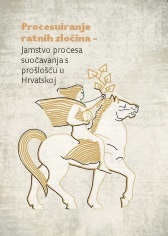
Predmet ove analize su imenovanja i razrješenja sudaca u Republici Hrvatskoj od 1990. do 1996. godine. To se razdoblje podudara s proglašenjem neovisnosti Republike Hrvatske i donošenjem tzv. božićnog Ustava 1990., razdobljem ratnih događaja i izvanrednog stanja te neposrednog poraća. To je ujedno i razdoblje velike pravne nesigurnosti u sudstvu s obzirom na kašnjenje u donošenju zakona o sudovima i osnivanja Državnog sudbenog vijeća kao tijela nadležnog za imenovanja sudaca. Pravna nesigurnost i različita primjena nejasnih zakonskih odredbi, dovela je do neizvjesnosti statusa te posljedičnog egzodusa sudaca, mahom u odvjetništvo ili javno bilježništvo te prijevremenu mirovinu. Posljedica tog procesa bila je negativna selekcija u toj grani trodiobe vlasti, koja zapravo najizravnije jamči pravnu državu svojim građanima.
More...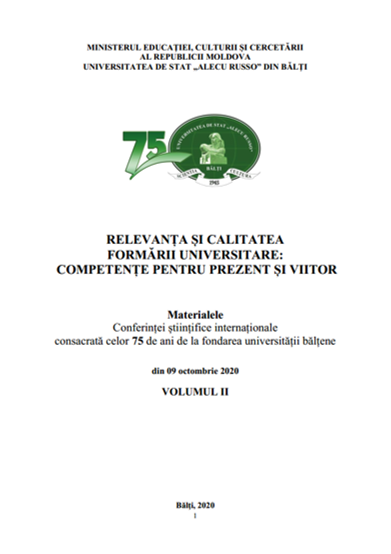
This article is dedicated to the study of crime prevention in the light of its essence, but also of those obliged to justify it. Or in the criminological doctrine there are several concepts: prevention, prophylaxis, fight with crime, etc., which in some situations are not clear to the recipient. In this sense, we come with the proposal to clarify the concept of crime prevention and its subjects
More...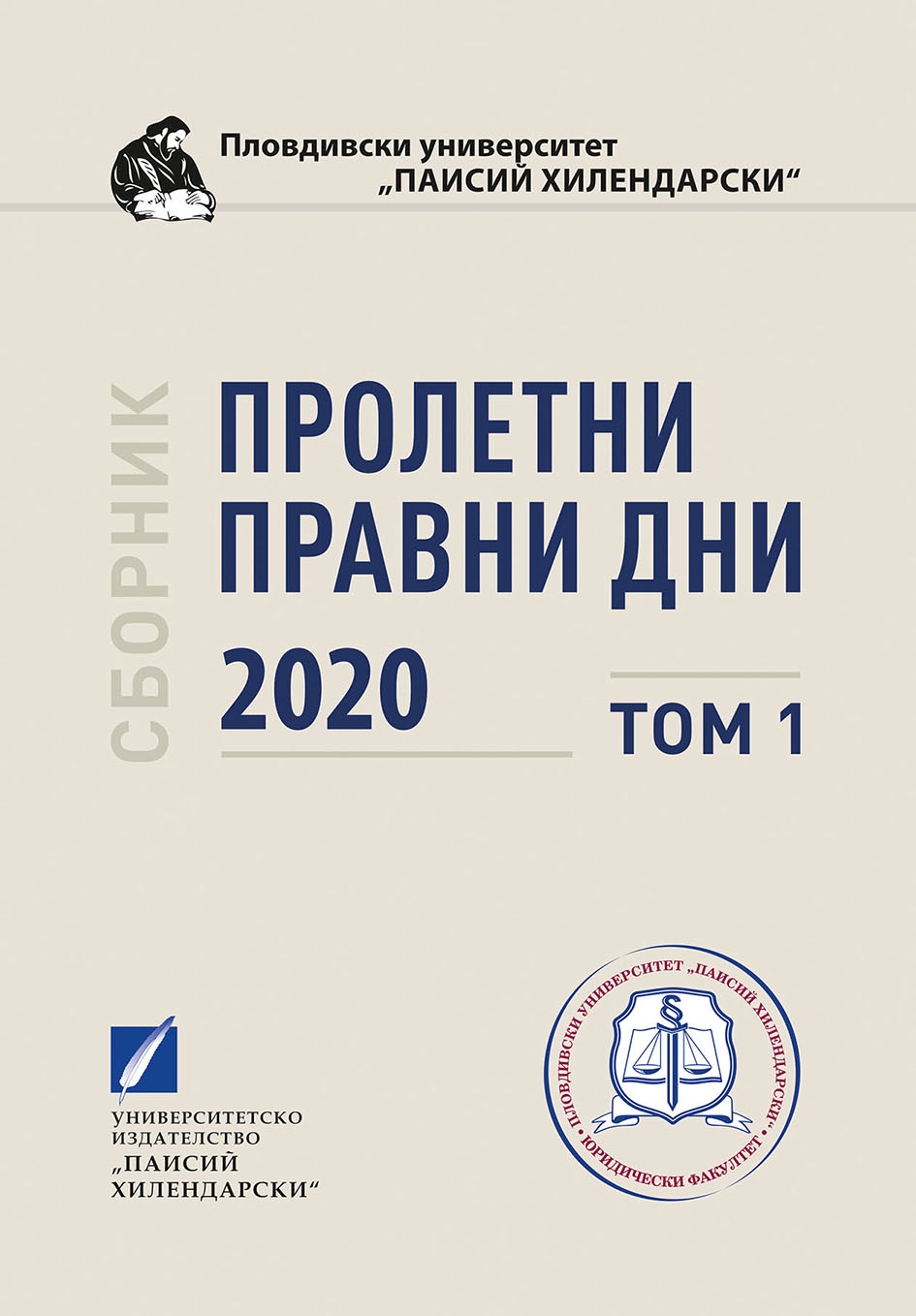
The issue of the connection between law and justice has historical, politological and purely legal and legal-philosophical aspects. The analysis of that relationship needs a philosophical and historical overview to be made, as well as to outline its contemporary aspects. The article is dedicated to the connection between justice and law in the context of the philosophical concept of fairness, equality and freedom. Philosophical-juridical discourse of justice brings forth the particular actuality of the topic given the context of the contemporary international standards and regulations that form the institutional frame of modern legal policy.
More...
The article addresses the main lines of the historical development of the institution, through a comparative perspective, from the beginning of the XIX century until today. It refers to the regulation of the civil laws – models of continental legal system (French and German), together with this of the Italian and Bulgarian law. The elements of the factual composition of this ground for annulment of the contracts [under Art. 30 of Bulgarian Law of Obligations and Contracts (LOC)] are stated. A brief analysis of the regulation of soft-law sources is made.
More...
The article represents the beginning of a broader and more in-depth study of the problems of expropriation in the public interest. This study involves tracing the historical foundations of the division of property into public and private, as well as the impact of its denial during certain periods for Bulgaria. It also presupposes a new look at the time-required restoration of this division of property and the consequences for Bulgarian citizens. Examining this division in the light of modern law cannot be complete and exhaustive without tracing past developments. Three lines of research are emerging. The first line is related to the consideration of the separate types of property rights existing in Ancient Rome, as well as the question of which of the types of property began to be spoken of as public, along with private property. The second line of research logically passes through the question of the types of things known to Roman private law. There is also a third line of research, which concerns the division of law in Rome into public and private, the consequences of this division both for the systematization of Roman law as a whole and for the influence on matters of property. The division of public and private law later penetrated the European constitutions and their common rules of property. But these last questions are the subject of subsequent articles.
More...
The article examines the historical development of Bulgarian legislation on development regulation since the beginning of the third Bulgarian state. The main focus of the study is the importance of regulatory plans for the integration and division of real estate, as well as the legal effect of these plans on real property rights over the real estate. An attempt has been made to summarize and systematize the existing regimes and clarify their application at present.
More...
The article provides a chronological overview of the reasons that led to the emergence of the European Border and Coast Guard Agency. The prototypes of the common security and defense policy, their significance and development are noted. The agencies and policies for the protection of the external borders of the European Union are discussed.
More...